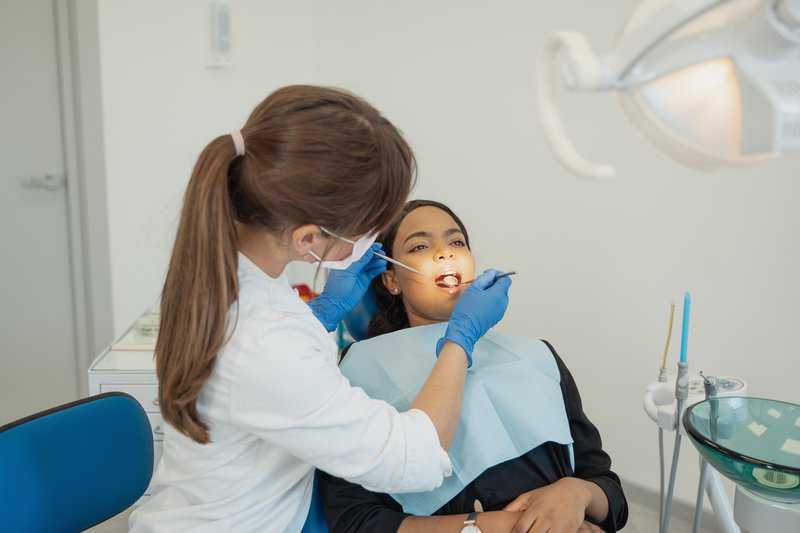Dental Implants Introduced: Your Ultimate Overview to Long-Lasting Tooth Replacement
In the world of contemporary dentistry, dental implants have actually emerged as a groundbreaking remedy for people looking for resilient and natural-looking tooth replacements. While the advantages of dental implants are commonly acknowledged, the intricacies of this treatment, ranging from candidateship demands to post-operative care, merit a closer examination.
Advantages of Dental Implants
Dental implants use a permanent and natural-looking remedy for changing missing teeth. One of the crucial advantages of dental implants is their sturdiness.
Another benefit of oral implants is their ability to maintain bone health and wellness. When a tooth is lost, the bordering bone may start to weaken over time.
Additionally, dental implants operate like natural teeth, enabling normal eating, speaking, and oral health methods. Unlike detachable dentures, implants are repaired in place, removing the aggravation of slippage or discomfort. Overall, the benefits of oral implants prolong past simply aesthetic appeal, supplying a useful and long-lasting option for people looking for to recover their smile and oral health.
Kinds Of Dental Implants
A range of dental implant layouts exist to provide to various tooth substitute requirements and bone structures. The most common kind is an endosteal implant, which entails putting a titanium screw directly into the jawbone.
For people with poor bone thickness, mini oral implants may be advised. These implants have a smaller diameter than conventional implants and are a much less intrusive option for those with thinner jawbones. One more type, the zygomatic dental implant, is anchored in the thick bone of the cheekbone rather than the upper jaw, making it a feasible choice for individuals with significant bone loss in the upper jaw area.
Each type of dental implant deals special advantages and is selected based upon specific requirements and physiological factors to consider. teeth whitening Applecross WA. Consulting with a certified dental professional can assist establish one of the most suitable implant type for every patient
Candidateship for Oral Implants
After identifying the most appropriate kind of implant based on private requirements and physiological factors to consider, the next crucial action is assessing a person's eligibility for undergoing dental implant treatment. Not every person is immediately a candidate for dental implants. A number of factors are considered to determine candidacy.

Firstly, a patient's overall health plays a considerable duty. Excellent basic health is necessary for effective implantation. Conditions such as unchecked diabetes, cancer, or certain autoimmune conditions may influence the body's ability to recover effectively after surgery, making the patient a less suitable candidate.
Secondly, the condition of the jawbone is important. Enough bone thickness and quantity are needed to support the dental implant. In instances where bone loss has occurred, bone implanting procedures might be required to increase the jawbone prior to dental implant placement.
Finally, dental health and wellness aspects such as gum tissue weblink disease and without treatment oral problems need to be dealt with prior to thinking about oral implants. A comprehensive assessment by a dental professional is critical to establish if a patient is an ideal prospect for this resilient tooth substitute choice.
The Dental Implant Procedure
Upon conclusion of the initial analysis and confirmation of candidacy for implant therapy, the oral implant treatment begins with thorough preparation and preparation. The initial step includes producing an individualized treatment plan customized to the client's particular needs. This strategy considers aspects such as the number of missing teeth, the condition of the jawbone, and the client's total oral wellness.
After the treatment plan is settled, the surgical stage of the oral implant procedure commences. During this phase, the oral implant, which functions as an artificial tooth origin, is very carefully put into the jawbone. This process is usually done under local anesthetic to make sure the client's convenience.
Adhering to the placement of the oral implant, a healing period is required to enable osseointegration, the fusion of the implant with the jawbone, to take location. Once the implant has fully integrated with the bone, a joint is affixed to the implant to connect the artificial tooth or crown.
Preserving Dental Implants
Guaranteeing the durability and optimum feature of dental implants pivots dramatically on diligent post-operative treatment and normal upkeep practices. After More Bonuses the preliminary healing period, preserving dental implants includes a combination of good oral hygiene practices and routine expert learn this here now examinations.
Normal sees to the dental professional for professional cleansings and evaluations are important for keeping an eye on the wellness of both the implants and surrounding tissues. These exams allow for the early discovery of any type of issues that might arise, enabling punctual intervention to avoid issues. In addition, people with dental implants must prevent behaviors such as smoking and too much usage of tarnishing foods and beverages to maintain the visual appeal of their implants. By adhering to these upkeep guidelines, people can delight in the advantages of their oral implants for numerous years to come.
Conclusion
